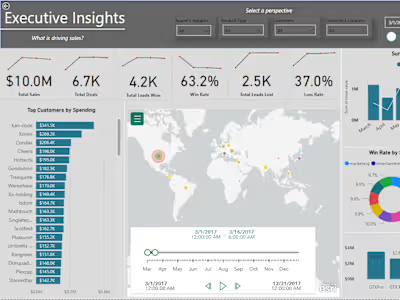Investigating The impact of High Corporate taxation ...
ABSTRACT
This work investigates the impact of higher corporate taxation on SMEs in Peterborough, UK. It examines financial challenges faced by SMEs, adaptive strategies used to mitigate these challenges, and the strengths and weaknesses of government support mechanisms. The research employs a mixed-methods approach, using surveys and qualitative analysis to gather data.
Findings indicate that SMEs in Peterborough face significant financial challenges due to higher corporate taxation, including reduced profitability, hindered investment opportunities, and constraints on growth and innovation. Despite these challenges, SMEs demonstrate resilience and resourcefulness by employing various adaptive strategies. Government support mechanisms provide valuable education and training opportunities but are limited by accessibility and adequacy issues.
The research emphasizes the importance of targeted interventions to support SMEs and promote regional competitiveness. Practical implications include recommendations for policymakers to tailor tax relief measures and enhance support program accessibility, as well as for SMEs to optimize tax planning and prioritize innovation. Stakeholder engagement, capacity building, and knowledge sharing are identified as critical components of creating a supportive ecosystem for SMEs in dynamic market environments.
CHAPETR 1 – INTRODUTION
1.1. Background of the Study
The economic landscape of the UK thrives on the vitality of SMEs, serving as the cornerstone of economic activities (Adam and Miller, 2023). SMEs play a pivotal role in the nation's economic framework, significantly contributing to employment, GDP, and regional development (SciSpace, 2024). This significance is particularly pronounced in Peterborough, located in East Anglia, where the SME sector prospers, collectively employing over 110,000 individuals between October 2022 to September 2023 (NOMIS, 2024); which represents over 50.8% of the city's population of 216,300 in the 2021 census (Volterra, 2023), and forecasted to make making substantial tax contributions to the UK exchequer (Peterborough City Council, 2024a).
SMEs are crucial engines of job creation, with the FSB reporting that they constituted 99.9% of the UK business population in 2020, employing approximately 16.8 million people (FSB, 2021; Peterborough City Council, 2024b). Their impact extends to regional development by fostering innovation, economic diversity, and community resilience (Jones-Evanset al., 2016; UK Research and Innovation, 2023).
Despite their economic significance, SMEs face a myriad of challenges that pose threats to their sustainability, especially considering the contemporary landscape in the UK. Elevated operational costs, notably rising labor expenses and increasing regulatory demands, exert significant strain on the financial well-being of SMEs (Cosh, Cumming & Hughes, 2009). Additionally, the current economic climate, marked by heightened inflation and an increased cost of living in the UK, further exacerbates the financial pressures faced by these enterprises.
Furthermore, SMEs operate in an environment where access to skilled labor has become a critical concern. The scarcity of qualified personnel poses challenges to maintaining operational efficiency and innovation within SMEs. The evolving nature of workforce dynamics, compounded by external factors such as Brexit, has created a labor landscape that demands strategic workforce planning and adaptability.
In the face of these challenges, SMEs must contend with intense competition in both local and global markets. Navigating this competitive landscape necessitates continuous innovation, adaptability, and a strategic approach to business operations (Porter, 1998). SMEs that can effectively address contemporary issues, including those related to the cost of living, inflation, and access to skilled labor, are better positioned to enhance their competitiveness and ensure long-term sustainability in the dynamic business environment.
Moreover, limited access to financing presents a recurring hurdle for SMEs pursuing growth opportunities. Conventional financial institutions often view SMEs as riskier ventures, resulting in restricted credit availability (Beck, Demirgüç-Kunt & Maksimovic, 2005). This financial constraint may impede their capacity to invest in capital investments like research and development, operations expansion, and navigate economic downturns effectively (Hosono, Hotei and Miyakawa, 2023).
Of particular concern among these challenges is the potential impact of high corporate taxation on SME sustainability. While taxation is integral to public finance and economic policy, excessive corporate taxes can detrimentally affect SME profitability, reinvestment capabilities, and overall market competitiveness (Barrios et al., 2012).
The trajectory of corporate taxation in the UK has been marked by fluctuations in tax rates over time. Starting from a main rate of 30% in the early 2000s, the corporate tax rate gradually decreased to 19% by 2022, reflecting the evolving fiscal policies of the government (HM Revenue & Customs, 2022). However, recent proposals suggest a potential upward revision in corporate tax rates, indicating the ongoing adjustments made to address fiscal challenges (PwC, 2024). These fluctuations underscore the dynamic nature of corporate taxation policies and their impact on businesses operating within the UK.
In a global context, international benchmarks provide valuable insights into corporate tax landscapes. The World Bank's "Doing Business" report offers comparative analyses of corporate tax rates across countries, revealing a global average of 23.53% in 2022 (World Bank, 2020). Variations range widely, from 9.00% in the United Arab Emirates to 31.58% in Argentina, emphasizing the diverse tax environments that businesses navigate (World Bank, 2020). Additionally, the Organization for Economic Co-operation and Development (OECD) provides data on effective corporate tax rates, considering deductions and allowances that influence actual tax burdens on businesses (OECD, 2021). This comprehensive approach to understanding global tax landscapes highlights the challenges faced by SMEs in managing their tax obligations within the broader economic context.
1.2. Problem Statement
The escalated levels of corporate taxation emerge, particularly the increased rate introduced in the fiscal year 2022-2023 (HM Revenue & Customs, 2022; Trading Economics, 2024), stand as a looming threat to the sustainability of SMEs in Peterborough. This predicament necessitates a comprehensive exploration and analysis, drawing insights from both global research and UK-specific perspectives to unravel the intricate dynamics at play. The potential impact of heightened corporate taxation on SMEs is multifaceted, with repercussions encompassing financial viability, operational efficiency, and overall competitiveness (Harju, Koivisto and Matikka, 2022). This research aims to delve into the nuanced challenges precipitated by the elevated tax rate introduced in the recent fiscal year, offering a deeper understanding that is imperative for formulating targeted strategies.
Reports from UK-based institutions further underscore the potential ramifications of these tax changes on SMEs. The Confederation of British Industry (CBI), in an assessment of the economic landscape, highlighted concerns regarding the increased tax burden on SMEs and its potential adverse effects on their growth prospects (CBI, 2023). Additionally, a report by the IFS delves into the specific implications of the elevated corporate tax rate on the financial health of SMEs, emphasizing the need for tailored policy responses to mitigate these challenges (Adam, Delestre and Nair, 2023).
This study, therefore, not only contributes to the broader discourse on the impact of corporate taxation on SMEs but also integrates the specific concerns and insights from UK-based reports and institutions. The ensuing analysis will inform policymakers, business leaders, and other stakeholders about the intricacies of the local landscape, enabling the development of targeted strategies to support SMEs and foster an environment conducive to their sustained growth, ensuring their continued role as vital contributors to the local economy.
1.3. Research Objectives
This dissertation investigates the impact of higher corporate taxation on the sustainability of SMEs in Peterborough. The specific objectives of this study are:
To examine the effects of high corporation taxation on the viability of SMEs in Peterborough.
To identify the specific problems faced by SMEs due to high corporate taxation.
To evaluate the effectiveness of existing government support mechanisms.
To provide recommendations for policymakers to mitigate the negative impact of high corporate taxation on SMEs and foster their sustainability.
1.4. Research Questions
To address the objectives, the following research questions will guide the study:
What is the impact of high corporate taxation on the sustainability of SMEs in Peterborough?
What are the specific problems faced by SMEs due to high corporate taxation?
How effective are the existing government support mechanisms in mitigating the negative impact of high corporate taxation on SMEs?
What recommendations can be proposed for policymakers to foster the sustainability of SMEs in Peterborough?
1.5. Significance of the Study
The significance of this study is underscored by its potential contributions to various aspects of academic understanding and practical policymaking:
Insights into SME Sustainability: This research will provide in-depth insights into the specific challenges and implications of high corporate taxation on the sustainability of SMEs in Peterborough. By examining the experiences, perspectives, and challenges faced by SME owners and managers, the study aims to shed light on the nuanced ways in which taxation influences their viability. This understanding is crucial for devising targeted interventions and support mechanisms, as 16% of respondent SMEs in Peterborough reported a decline in profitability due to high corporate taxation pressures (Table 2, Figure 3).
Contribution to Corporate Tax Policy Discourse: The study contributes to the broader academic discourse on corporate tax policy, offering empirical evidence on the impact of taxation on SMEs. Academic and policy debates often revolve around the effectiveness and fairness of tax policies, especially concerning their impact on small businesses. By situating the research within this discourse, the study aims to enrich the existing body of knowledge and provide a context-specific perspective. This contribution is particularly significant given that 62.5% of the respondent SMEs in Peterborough cite high corporate taxation as a major barrier to innovation, underscoring the need for nuanced policy discussions and interventions (Table 3, Figure 4).
Guidance for Policymakers: The actionable recommendations derived from the study are designed to guide policymakers in formulating effective measures. Policymakers often seek evidence-based insights to craft policies that support economic growth and the resilience of local businesses. This study aims to serve as a valuable resource, offering practical suggestions for mitigating the adverse effects of high corporate taxation on SMEs in Peterborough.
In summary, the study's significance extends beyond its immediate focus on SMEs in Peterborough. It aligns with broader discussions on tax policy and regional economic development, providing both theoretical and practical insights that can inform academic research and guide policymakers in fostering a conducive environment for SMEs.
1.6. Scope and Delimitation
1.6.1. Scope
This study navigates through the intricate landscape of corporate taxation and its implications for SME sustainability, specifically within the context of Peterborough. The geographical scope encompasses Peterborough, a city in eastern England renowned for its thriving SME sector. The temporal scope extends to contemporary dynamics, considering recent developments in corporate taxation policies and their immediate effects on SMEs. The study's thematic scope is defined by the multifaceted challenges faced by SMEs, with a prominent focus on the impact of high corporate taxation.
1.6.2. Delimitation
While aiming for a comprehensive exploration, certain delimitation is essential for refining the study's focus and maintaining feasibility:
Geographical Delimitation: The study primarily centers on Peterborough, limiting its generalization to other regions. The uniqueness of Peterborough's SME landscape necessitates a focused examination.
Temporal Delimitation: The study prioritizes recent developments, restricting its scope to the immediate implications of corporate taxation policies. Historical perspectives on taxation policies fall outside the purview of this research.
Industry Delimitation: While acknowledging the diverse SME sector, this study does not delve into industry-specific nuances. The focus is on overarching challenges and implications applicable across various SME types.
Legislative Delimitation: The study does not engage in a detailed analysis of specific corporate tax legislation. It acknowledges the broader impact of corporate taxation without exhaustively dissecting legislative intricacies.
These scope and delimitation parameters are crucial for maintaining a focused and manageable study, ensuring depth in the exploration of the identified research questions within the specified context.
Like this project
Posted Jun 24, 2024
This work investigates the impact of higher corporate taxation on SMEs in Peterborough, UK.







